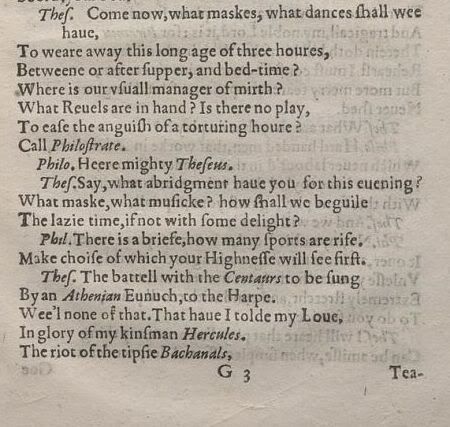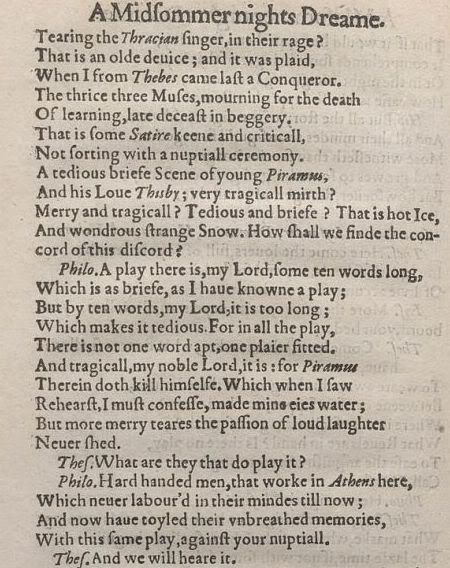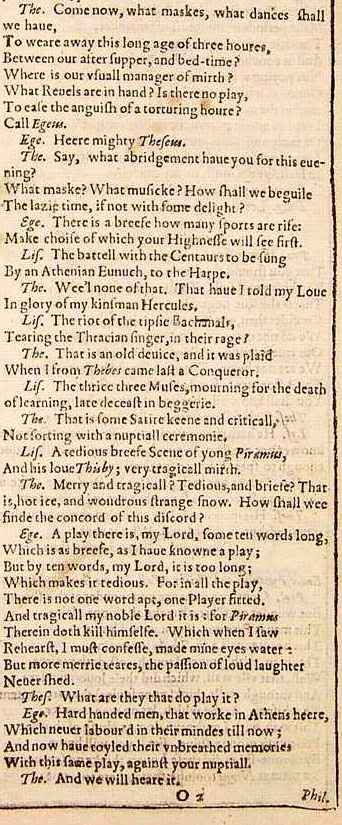Quarto Version


Folio Version



Folio Version

What interested me about this isn't just that the speech prefixes get reassigned -- what I find particularly intriguing is that almost nothing else changes between the two versions. Throughout the conversation and the itemization of theatrical endeavors, most of the spellings and puncutation remain consistent between the editions. Even the least-orthodox of the spelling variations -- "muſicke", "Wee'l", "tipſie", "vſuall" -- remain the same between the Quarto and the Folio. At Philostrate's/Egeus's speech beginning "A play there is," inconsistencies begin to appear, but until that point, it looks as though whoever did the typesetting for the Folio copied the Quarto nearly identically -- except for the prefixes.
The striking similarities in typesetting, despite the considerable change to the speech prefixes, really makes me wonder what the cause for that change was. Could this be an example of the Folio text reflecting a change to the play-as-produced? Somewhere between 1600 and 1623, did Shakespeare the author, or the King's Men as a company, decide that the scene worked better as a dialogue between Lysander and Theseus? Did a new doubling mean that whoever played Philostrate in 1.1 could not be available for this section of text? This change seems too large and too deliberate to have been an error, since it involves not only reassigning speech prefixes but also breaking a monologue into a dialogue. There must have been a reason -- but we're not ever likely to find out what that reason was. This textual variant offers a tantalizing opportunity for speculation -- just the sort of intellectual and imaginative experiment that makes working with early modern texts so intriguing.

No comments:
Post a Comment